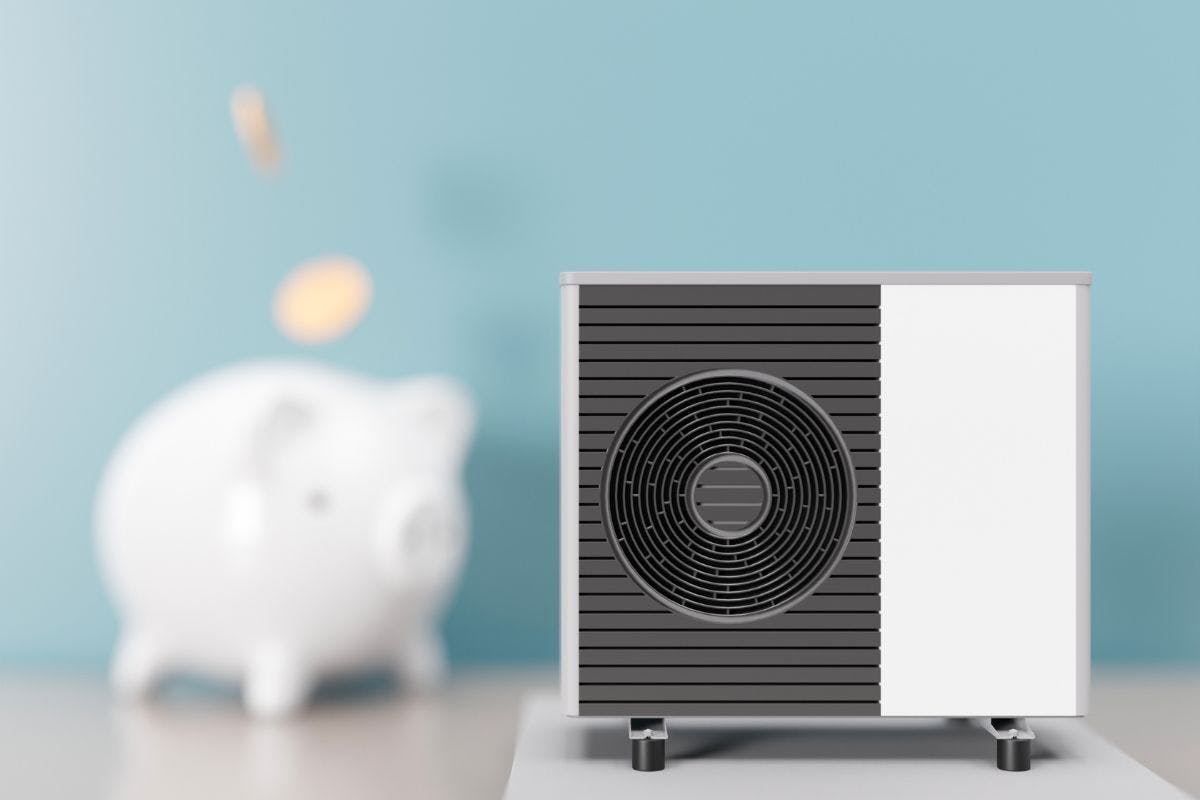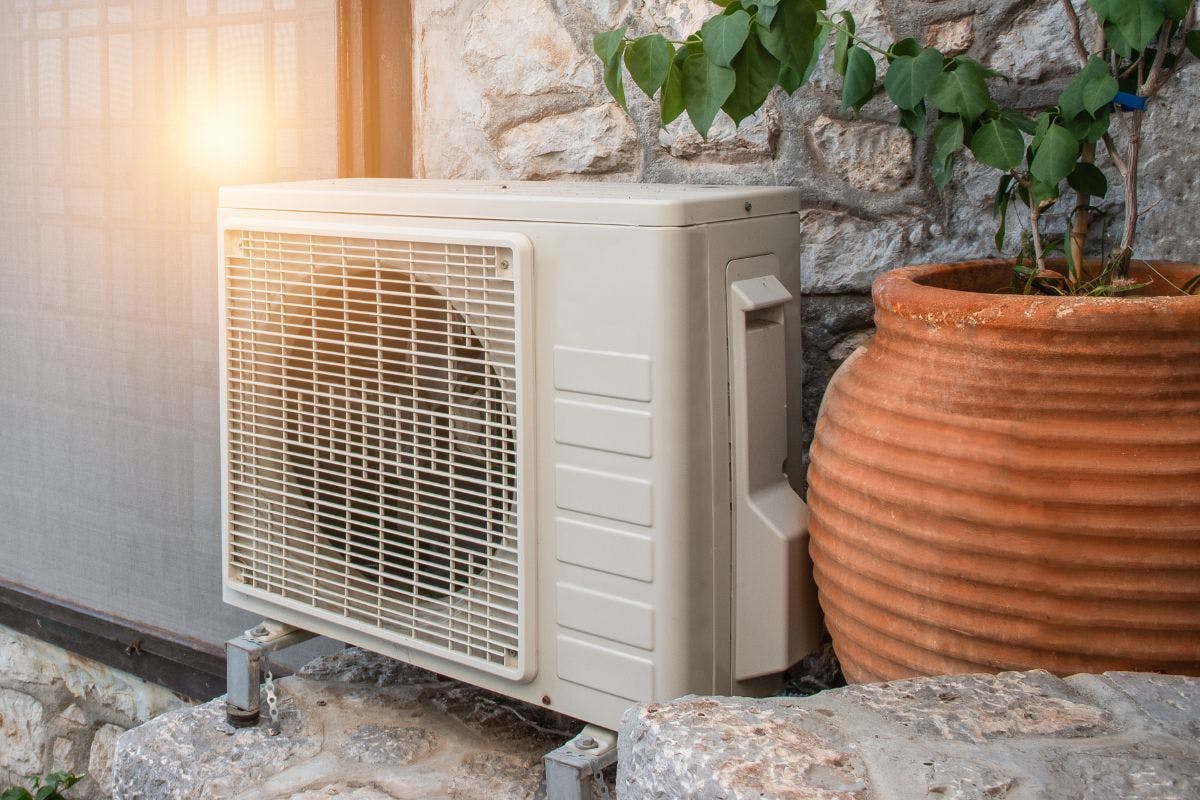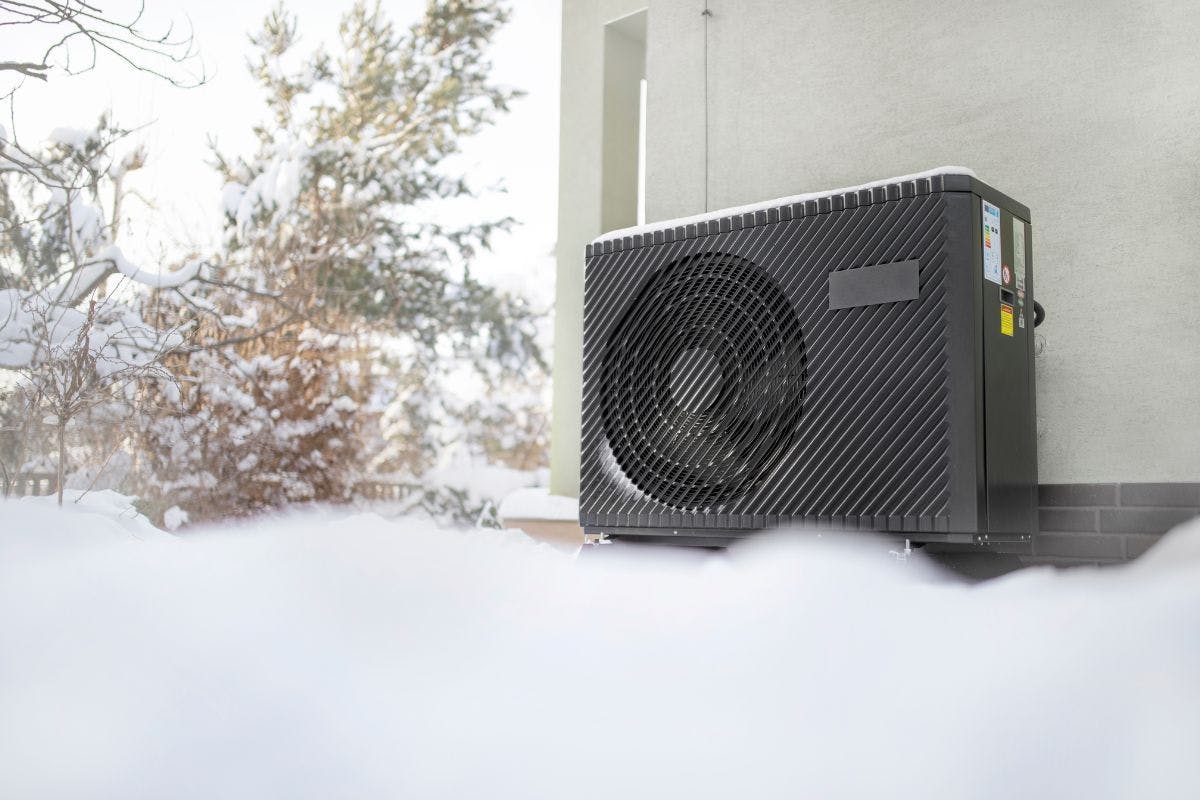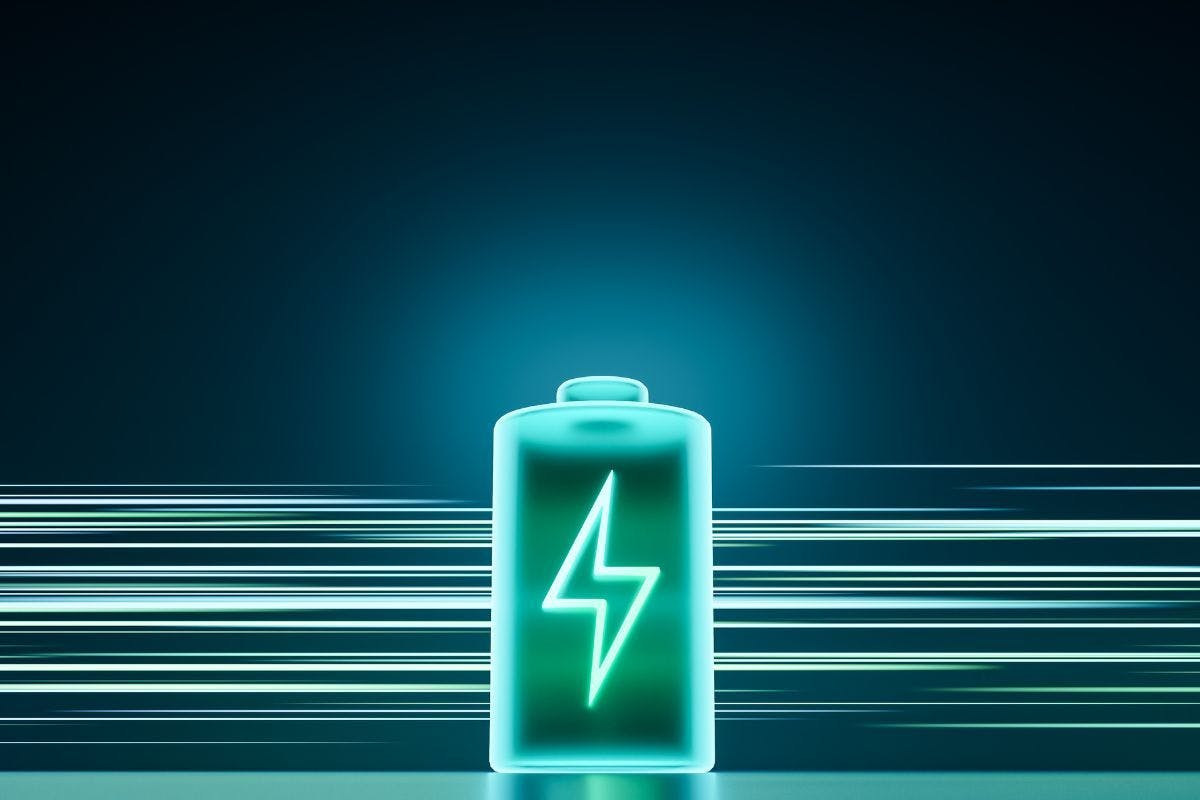How Much Can a Heat Pump Save Me?
Actualizado

Autor
Andrew Giermak
Writer and Editor

Editor
Andrew Blok
Writer and Editor

If you’re paying more than ever for home heating and cooling, a switch to a heat pump delivers most users savings in multiple ways. Heat pumps primarily save you money by reducing the cost to heat and cool your home. You can achieve further savings by choosing a system with the newest technology, taking advantage of tax credits and incentives while they still exist, and upgrading to a system that precisely fits your local climate.
Comfort, lower utility bills, air quality, and home electrification are excellent reasons to consider a heat pump. Here's how heat pump energy savings can save you money.
See how much you can save with home energy changes
Heat Pumps Save Through Efficiency
Heat pumps save users money by using far less energy, as they move heat rather than generate it. Moving heat from outside a home to inside heats the interior space. Moving heat outside cools the interior space.
Estimated savings with a heat pump vary by the area of the country, your utility’s electric rates, what HVAC system you’re replacing, available tax credits, and if you’ve gone or are going solar. Estimated savings range from about $300 a year to about $1,000 a year, depending on the source.
How heat pumps work
Heat pumps transfer heat, either from outside to inside, or from inside a building to the exterior. You can think of a heat pump like your refrigerator, but reversible. In fact, a heat pump has refrigerant fluid or gas in it.
When a heat pump is in cooling mode, it blows air into the indoor unit across a cold refrigerant coil. The refrigerant captures the heat. The refrigerant is condensed into a liquid, then goes through an expansion valve to lower its pressure, releasing heat during both changes. This cycle continues until the set interior temperature is reached because enough warm air has been pumped out.
In heating mode, the process is reversed. In the outdoor coil, the refrigerant evaporates and cools until it can draw heat from the outdoor air, even when it's very cold. The refrigerant carries the heat indoors. Backup electric heat strips can speed up or supplement the process.

Credit: energy.gov
Heat pumps vs. electric resistance heating
Electric furnaces, baseboard heating, radiant floor heating, and space heaters are forms of electric resistance heating. Electric resistance heating converts electric power into heat and it is very close to 100% efficient. That gives electric resistance heating a coefficient of performance of about 1.0. For every unit of energy that goes in, you get one unit of heat out.
Air-source heat pump heating systems typically have a COP rating of 2.0-5.4. Ground-source or geothermal heat pumps can work at a COP rating of 3.0-6.0. According to the Department of Energy, a heat pump can reduce electricity use for heating by about 75% compared to electric resistance heating systems.
How Much Do Heat Pumps Save?
How much you can save by switching to a heat pump depends on a range of factors such as home size, your climate, your daily, weekly, or even seasonal routine, and if you’re using home solar panels for electricity.
In February 2024, the National Renewable Energy Laboratory reported 62-95% of American homes would save money on energy bills by going to a heat pump. NREL found 92-100% of homes using gas, propane, or another electric system for heating would save money by switching to a heat pump.
NREL estimated the average annual savings at $300-$650. In cases with larger homes, replacing very old or very inefficient systems, or projects also including insulation upgrades, savings can add up to thousands a year.
See how much you can save with home energy changes
Factors Affecting Heat Pump Savings
Your old system
How much you save depends if you’re replacing a natural gas furnace or electric resistance heating. If you’re switching from two older, less efficient systems, even if one is an old heat pump, you’re likely to see more significant savings.
If you’re getting rid of a gas furnace, you are reducing, and maybe even eliminating a monthly gas bill. A heat pump water heater and an electric stove can also help replace gas use at home.
Energy prices
If you're considering an electric heat pump, the difference in your utility electricity and natural gas rates will affect your savings.
One way to control your energy bills is with home solar power. The more electricity you use instead of fossil fuel sources, the more that electricity can come from renewable solar power. Adding battery storage to your system will let you use your solar power anytime of day or night, which also means avoiding higher rates during peak periods with a time-of-use rate.

Source: eia.gov
Your home’s insulation and efficiency
When you add or improve insulation and switch to a modern, high-efficiency heat pump, the percentage of US homes that save money goes to 82-97% according to NREL.
Bringing your home’s insulation up to recommended levels is a big way to improve heat pump energy savings and your home’s heating and cooling comfort and efficiency. Weatherstripping and air sealing around doors and windows, caulking, and sealing gaps near baseboards, outlets, and vents help with energy efficiency, indoor air quality, moisture control, and more.
Heat pump efficiency
Generally speaking, a heat pump's upfront cost increases with its efficiency. Yet, higher efficiency often translates into greater savings over the years. Best practice is balancing energy efficiency, climate, and usage needs with your budget and not needlessly overspending.
A heat pump’s SEER2 rating is a ratio of energy usage to cooling output. The HSPF2 is a similar ratio of energy usage to heating output. Normally, the higher the SEER2 and/or HSPF2, the more expensive the system is. The best advice is to get the ratings recommended for your zone or region, rather than buy the highest possible SEER2 or HSPF2.
Geothermal heat pump efficiency
Ground-source, or geothermal, heat pumps are more expensive to purchase and install than air-source units. Excavation and installation are typically major expenses with a geothermal system. On the savings side, though, geothermal heat pumps are more efficient than air-source heat pumps with COPs of 5.0 or higher in most circumstances. Geothermal systems have longer average lifespans than air-source heat pumps and furnaces, up to 50 years for the in-ground or in-water loops.
Ducted vs. ductless heat pump systems
Comparing ducted systems to mini-split or ductless systems is worthwhile, too. When is a ducted system the better, more efficient choice?
- When you want the entire home to have the same temperature
- With a new construction, and you will have new, perfectly-optimized ducts
- When your current ducts are in excellent condition and working order
When is a ductless system the more efficient choice?
- When a home has old or inefficient ducts (A University of Florida study found a typical ducted heating and cooling system wastes about 40% of its energy)
- When a home needs new ducts or extensive renovation to its ductwork to install a new ducted system
- When you want zoned heating and cooling
- For smaller homes or homes with open layouts
- For additions or converted spaces where you don’t want to extend your larger ducted system
More Tips for Maximizing Heat Pump Savings
- Heat pump maintenance: Efficiency is one reason to stay on top of regular service and maintenance. Some tasks you can do yourself: Changing filters, keeping registers clean and clear, and making sure the space around exterior units are clear and good for airflow. Other tasks need professional work. Regular inspections, checking and cleaning coils, and anything with electrical work or refrigerant should be handled by a pro.
- Get an energy audit: An energy audit assesses many aspects of a home for energy efficiency. Again, some parts of an audit you can do. Others need expert-level experience or equipment. Checking insulation levels, fixing drafty areas around doors and windows, switching to LED light bulbs, using smart plugs, and stopping vampire energy are some energy-saving projects.
- Get the right size and installation: The heating and cooling needs of a 1,750-sq. ft. house with no one home most days from 9-5 are different than for a 4,000-sq. ft. house with a lot more coming and going. Once a knowledgeable pro has worked with you to find the right system size, ratings, and features, a professional installation is important to giving you the efficiency, reliability, warranty coverage, and comfort you’re counting on.
- Use heat pump incentives: New energy-efficient heat pumps may be eligible for federal tax credits as part of the Energy Efficiency Home Improvement Credit. The credit is worth up to 30% of the cost of qualified home improvements up to $2,000 for heat pumps and other appliances and up to $1,200 for energy-efficiency improvements like insulation and energy audits. Energy Star has a list of qualified heat pumps. There may be additional rebates or incentives in your state, locality, or with your utility. N.C. State University’s Database of State Incentives for Renewables and Efficiency is a searchable site for heat pump and other energy-related incentives.
Some examples of state and local incentives for heat pumps are:
- North Carolina: Energy Saver NC, through the NC Department of Environmental Quality, gives a rebate of up to $8,000 for eligible heat pumps, and other rebates for other energy-saving additions, to eligible properties, based mostly on household income. North Carolinians can find out more and apply here.
- California: The California Home Electrification and Appliance Rebate Program, or HEEHRA, run by the California Energy Commission, gave rebates up to $8,000 or $4,000, depending on income level, for heat pumps and other energy-efficient appliances before all funds were allocated.
- Colorado: In Fort Collins, Estes Park, Longmont, and Loveland, Colorado, Efficiency Works offers rebates up to $2,000 for the purchase and installation of qualified heat pumps.
- Naperville, Illinois: Naperville Electric Utility customers may qualify for rebates of $500 or $600 for ducted or ductless heat pumps that meet SEER2 and HSPF2 minimum requirements.
If you’re interested in upgrading your home’s comfort, as well as saving on heating and cooling, Palmetto can answer your heat pump questions. You can use our home energy advisor tool or our solar savings calculator to find out more.
See what home electrification can do for you:
Frequently Asked Questions
Can a heat pump save you money?
A new, energy-efficient heat pump saves most users money by using less energy and by reducing maintenance costs by replacing two systems with one. Estimated savings vary due to many factors, but the National Renewable Energy Laboratory estimates the average household savings from switching to a heat pump are $300-$650.
How much does a heat pump cost?
The cost of purchasing and installing a new heat pump also varies a great deal. Home size, energy rates, your normal usage, improvements to ductwork or electrical work, heat pump efficiency ratings, labor costs, and available tax credits or rebates, all impact the cost. Ductless mini-split heat pumps cost about $1,500-$5,000 per zone according to a range of online sites. Ducted air-source heat pumps range from $4,000-$25,000. Ground-source or geothermal heat pumps range from $15,000-$35,000.
Will a heat pump work in cold climates?
Heat pumps work well and with optimal efficiency in cold climates better than ever before. Particularly, cold climate heat pumps are built and certified to work at full efficiency in cold temperatures down to 5 degrees and some models maintain efficiency well below zero.
How do I find the right heat pump for my home?
A number of factors go into deciding on the right heat pump for your home. You can ask local companies with knowledge and experience in your area, fitting systems to similar homes in your climate. You can also use our home energy advisor page and we’ll provide an estimate, answer your questions, and help you find the right system for your home and needs.


